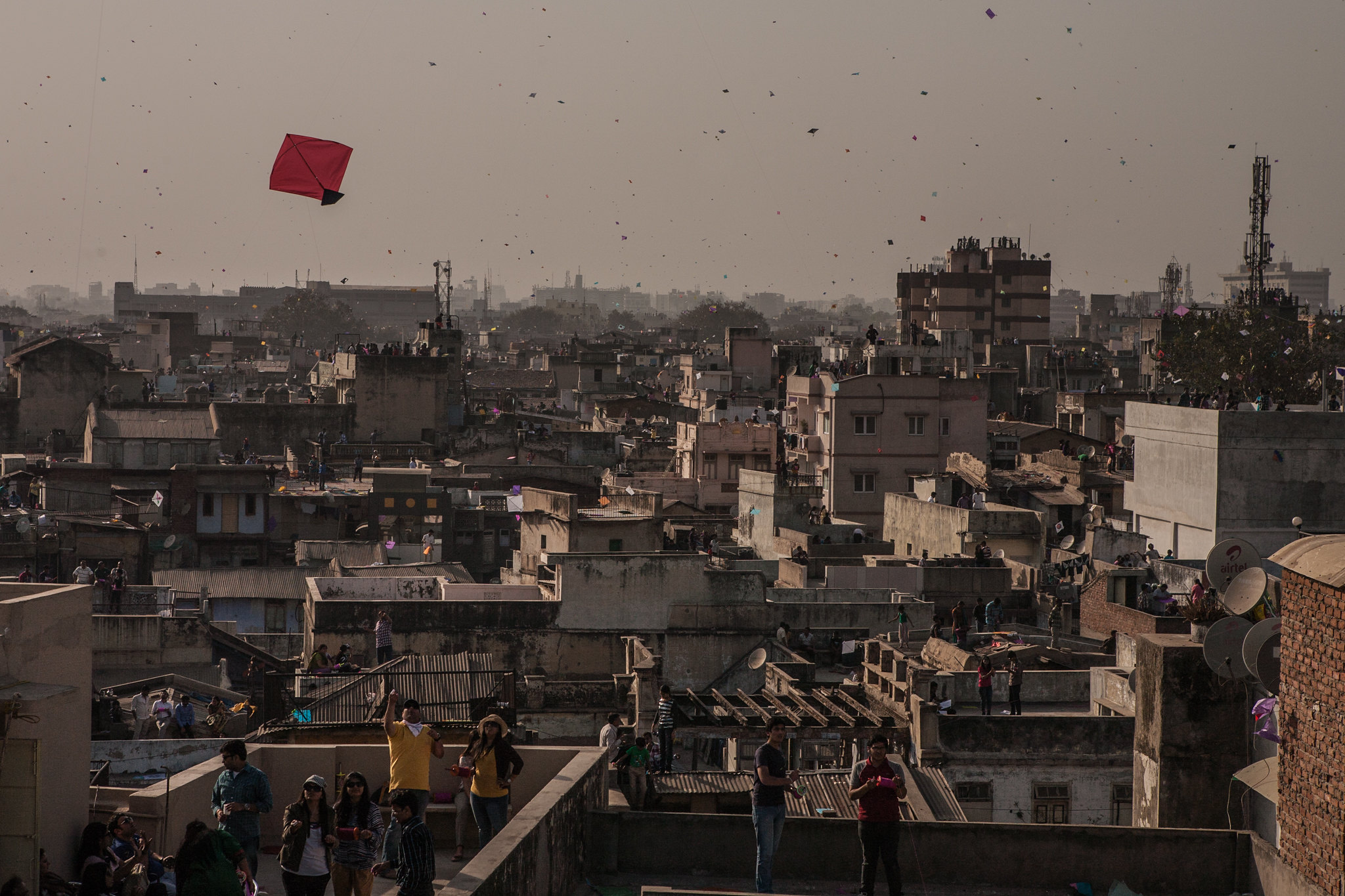There is only so much you can do in a small town. As a teenager, your best bet is making a group of friends with whom you can spend time gallivanting around, indulging in the usual teenager-y stuff: riding motorcycles at questionable speeds, gossiping about anyone and everyone in sight, and spending time mooning over less-than-stellar significant others. The limited socio-cultural scene of small towns in India offers little for those interested in more contemplative pursuits. That is to say, except for walking lazily along your terrace at night and braving the cold to revel in your solitude for extended periods of time.
Speaking as someone who has almost-chronic difficulty adhering to a schedule, going for a walk on the terrace in the evenings is probably the one thing I do every single day without fail. There is an ethereal quality to these walks in that the time I spend on my terrace just walking around and staring at the sky feels so different from the rest of the day. It is guilt-free and feels like the only portion of the day where I can actually breathe.
The evening sky’s muted hues provide an ideal background for coming to terms with the trials and errors of another day gone by, the descending darkness bringing with it a sense of security, of being away from the watchful and mostly judgemental eyes of much-dreaded neighbours and family members, leaving me alone enough to take in all of the world’s sights and sounds as they come in, without the need for withdrawing into myself which so often characterises my afternoons. Thus cocooned in darkness, I exist in a space far away from the worrying realities of the life that I lead within the four walls of my home, if only for a few moments.
On the surface, walking as an activity seems to be relatively simple; you put one foot in front of the other and cover your terrain, moving your feet in ways that you have been moving since you were a baby. And yet, walking as an activity has fascinated artists, scientists and writers alike for hundreds of years. In an age that espouses productivity almost as a virtue to the extent that we are forced to centre our entire existence around it, an act as simple as wandering – without any particular goal in sight – feels like an act of rebellion.
Also read: Spaces and Socialising: The Pandemic and the Terrace
The blue silhouettes of the mountains against the evening sky serve as reminders of nature’s beauty and yet, they also serve as reminders of borders, both physical and metaphorical. They serve as reminders of the way your geographical location often determines who gets what opportunities and whose life is deemed worthy enough of being given a thirty second mention in national media. What does it mean to belong to the mountains? What does it mean to give your life to them, thereby surrendering all hopes of finding personal success in the wider world? What does it mean to be proud of your origins even as you wrestle constantly with how the barometer for success in your beloved hills seems to be escaping into the city?
Existential dilemmas aside, in suffocating Indian families, the terrace also serves as a site of relief, creativity and freedom, so much so that it can be considered a desi counterpart to Virginia Woolf’s conception of “a room of one’s own”. To look around at my neighbours’ terraces is to look at a microcosm of Indian women’s lives. I see teenagers talking to friends and lovers in hushed voices, conservative women letting their hair down without any hesitation, and newlywed wives calling their relatives away from the prying eyes of a home that they are forced to call their own in a town where women are often forced to get married almost as soon as they graduate.
This is not to say that the terrace is a mini-utopia where women are free to be themselves. In fact, the terrace is also a study in the gendered nature of rest and relaxation. Men are allowed to loiter, to walk freely without any chores troubling them whereas women in traditional Indian households seldom have the luxury of going to their terrace or any other place, for that matter, for the sole purpose of enjoyment. Even so, looking at these scenes is a bittersweet experience in that they give a picture of what women’s lives could potentially look like if they had unadulterated freedom but they are also a grim reminder of the societal and familial structures that force women to withdraw to the terrace in order to exercise the little freedom they have instead of being able to exercise that freedom in their homes.
How do you reconcile your love for the hills with the knowledge that staying back here means dealing with regressive structures like these and that leaving forever means having to go through your entire life wanting to return, to go back home?
Questions of identity, of the past and the future usually bubble up to the surface of my mind whenever I’m walking in the evenings; these walks provide an ideal environment for wrestling with questions and allow my thoughts to ferment. Not to mention that there is something deeply fulfilling about staying away from any devices and just basking in your thoughts for a while. Coming to terms with your own messy self can be scary at times but I wouldn’t give it up for anything.
Yashaswini Joshi is a 19-year-old student from Nainital who is currently on a gap year. She enjoys reading Virginia Woolf, Toni Morrison and Marcel Proust, and hopes to be a writer someday.
Featured image credit: Flickr/Sandeepa Chetan

